| Listing 1 - 10 of 18 | << page >> |
Sort by
|
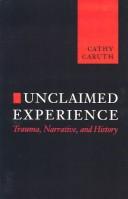
ISBN: 0801852471 9780801852473 0801852463 Year: 1996 Publisher: Baltimore, Md Johns Hopkins University Press
Abstract | Keywords | Export | Availability | Bookmark
 Loading...
Loading...Choose an application
- Reference Manager
- EndNote
- RefWorks (Direct export to RefWorks)
In Unclaimed Experience, Cathy Caruth proposes that in the "widespread and bewildering experience of trauma" in our century -- both in its occurrence and in our attempt to understand it -- we can recognize the possibility of a history no longer based on simple models of straightforward experience and reference. Through the notion of trauma, she contends, we come to a new understanding that permits history to arise where immediate understanding is impossible. In her wide-ranging discussion, Caruth engages Freud's theory of trauma as outlined in Moses and Monotheism and Beyond the Pleasure Principle; the notion of reference and the figure of the falling body in de Man, Kleist, and Kant; the narratives of personal catastrophe in Hiroshima mon amour; and the traumatic address in Lecompte's reinterpretation of Freud's narrative of the dream of the burning child.
Thematology --- Psychological study of literature --- anno 1900-1999 --- Literature, Modern --- Psychic trauma in literature. --- Disasters in literature. --- Literature and society --- Littérature --- Traumatisme psychique dans la littérature --- Catastrophes dans la littérature --- Littérature et société --- History and criticism. --- History --- Histoire et critique --- Histoire --- 82:159.9 --- literatuur --- Psychologie --- psychoanalyse --- trauma's --- Freud, Sigmund --- Lacan --- Literatuur en psychologie. Literatuur en psychoanalyse --- (zie ook: ontwikkelingspychologie) --- Psychoanalyse --- klinische beschouwingen --- 82:159.9 Literatuur en psychologie. Literatuur en psychoanalyse --- klinische beschouwingen. --- History and criticism --- Klinische beschouwingen. --- Littérature --- Traumatisme psychique dans la littérature --- Catastrophes dans la littérature --- Littérature et société --- Disasters in literature --- Psychic trauma in literature --- Literature --- Literature and sociology --- Society and literature --- Sociology and literature --- Sociolinguistics --- Social aspects --- Traumatisme psychique --- Catastrophes --- 20e siècle --- Dans la littérature --- Histoire et critique. --- Dans la littérature.
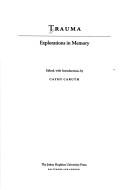
ISBN: 080185007X 9780801850073 0801850096 Year: 1995 Publisher: Baltimore, Md Johns Hopkins University Press
Abstract | Keywords | Export | Availability | Bookmark
 Loading...
Loading...Choose an application
- Reference Manager
- EndNote
- RefWorks (Direct export to RefWorks)
Because traumatic events are unbearable in their horror and intensity, they often exist as memories that are not immediately recognisable as truth. Such experiences are best understood not only through the straightforward acquisition of facts but through a process of discovering where and why conscious understanding and memory fail. Literature, according to Cathy Caruth and others, opens a window on traumatic experience because it teaches readers to listen to what can be told only in indirect and surprising ways. Sociology, film and political activism can also provide new ways of thinking about and responding to the experience of trauma. This work offers an analysis of what literature and the new approaches of a variety of clinical and theoretical disciplines bring to the understanding of traumatic experience. The combination of essays and interviews is intended to be of interest to analysts and critics concerned with the notion of trauma and the problem of interpretation and, more generally, to those interested in current discussions of subjects such as child abuse, AIDS and the effects of historical atrocities such as the Holocaust.
False memory syndrome. --- Psychic trauma. --- Recovered memory. --- Post-traumatic stress disorder. --- klinische beschouwingen --- Psychisch trauma --- klinische beschouwingen. --- Posttraumatische stressstoornis. --- Psychisch trauma. --- Klinische beschouwingen. --- 866 Herdenking en herinnering --- 82:159.9 --- 82:159.9 Literatuur en psychologie. Literatuur en psychoanalyse --- Literatuur en psychologie. Literatuur en psychoanalyse --- False memory syndrome --- Post-traumatic stress disorder --- Psychic trauma --- Recovered memory --- Delayed memory --- Recovered memories --- Repressed memory --- Memory --- Emotional trauma --- Injuries, Psychic --- Psychic injuries --- Trauma, Emotional --- Trauma, Psychic --- Psychology, Pathological --- Posttraumatic stress disorder --- PTSD (Psychiatry) --- Stress disorder, Post-traumatic --- Traumatic stress syndrome --- Anxiety disorders --- Stress (Psychology) --- Traumatic neuroses --- Intrusive thoughts --- False memories --- Memories, False --- Memory, False --- Iatrogenic diseases --- Psychiatric errors --- Syndromes --- Psychiatry --- Psychological study of literature --- Psychoanalyse --- Littérature --- Traumatisme psychique --- Littérature et société --- Catastrophes --- 20e siècle --- Histoire et critique --- Dans la littérature --- Dans la littérature. --- Vingtième siècle.
Book
ISBN: 9781421421650 9781421421667 1421421666 1421421658 Year: 2016 Publisher: Baltimore (Md.) : Johns Hopkins University Press,
Abstract | Keywords | Export | Availability | Bookmark
 Loading...
Loading...Choose an application
- Reference Manager
- EndNote
- RefWorks (Direct export to RefWorks)
"In Unclaimed Experience, Cathy Caruth proposes that in the widespread and bewildering experience of trauma in our century--both in its occurrence and in our attempt to understand it--we can recognize the possibility of a history no longer based on simple models of straightforward experience and reference. Through the notion of trauma, she contends, we come to a new understanding that permits history to arise where immediate understanding may not. Caruth explores the ways in which the texts of psychoanalysis, literature, and literary theory both speak about and speak through the profound story of traumatic experience. Rather than straightforwardly describing actual case studies of trauma survivors, or attempting to elucidate directly the psychiatry of trauma, she examines the complex ways that knowing and not knowing are entangled in the language of trauma and in the stories associated with it. Caruth's wide-ranging discussion touches on Freud's theory of trauma as outlined in Moses and Monotheism and Beyond the Pleasure Principle. She traces the notion of reference and the figure of the falling body in de Man, Kleist, and Kant; the narratives of personal catastrophe in Hiroshima mon amour; and the traumatic address in Lecompte's reinterpretation of Freud's narrative of the dream of the burning child. In this twentieth-anniversary edition of her now classic text, a substantial new afterword addresses major questions and controversies surrounding trauma theory that have arisen over the past two decades. Caruth offers innovative insights into the inherent connection between individual and collective trauma, on the importance of the political and ethical dimensions of the theory of trauma, and on the crucial place of literature in the theoretical articulation of the very concept of trauma. Her afterword serves as a decisive intervention in the ongoing discussions in and about the field"--
Literature, modern --- Psychic trauma in literature. --- Disasters in literature. --- Literature and society --- Literary criticism --- Psychology --- Literature and society. --- Literature, modern. --- History and criticism --- History --- Semiotics & theory. --- General. --- Movements --- Psychoanalysis. --- 1900-1999. --- Literature, Modern --- Psychic trauma in literature --- Disasters in literature --- Literature --- Literature and sociology --- Society and literature --- Sociology and literature --- Sociolinguistics --- Social aspects --- 82:159.9 --- 82:159.9 Literatuur en psychologie. Literatuur en psychoanalyse --- Literatuur en psychologie. Literatuur en psychoanalyse
Book
ISBN: 9781421411552 9781421411545 1421411547 1421411555 Year: 2013 Publisher: Baltimore London : Johns Hopkins University Press,
Abstract | Keywords | Export | Availability | Bookmark
 Loading...
Loading...Choose an application
- Reference Manager
- EndNote
- RefWorks (Direct export to RefWorks)
"Cathy Caruth juxtaposes the writings of psychoanalysts, literary and political theorists, and literary authors who write in a century faced by a new kind of history, one that is made up of events that seem to undo, rather than produce, their own remembrance. At the heart of each chapter is the enigma of a history that, in its very unfolding, seems to be slipping away before our grasp. What does it mean for history to disappear? And what does it mean to speak of a history that disappears? These questions, Caruth suggests, lie at the center of the psychoanalytic texts that frame this book, as well as the haunting stories and theoretical arguments that resonate with each other in profound and surprising ways. In the writings of Honor e de Balzac, Hannah Arendt, Ariel Dorfman, Wilhelm Jensen, Sigmund Freud, and Jacques Derrida, we encounter, across different stakes and different languages, a variety of narratives that bear witness not simply to the past but also to the pasts we have not known and that repeatedly return us to a future that remains beyond imagination. These stories of trauma cannot be limited to the catastrophes they name, and the theory of catastrophic history may ultimately be written in a language that already lingers in a time that comes to us from the other side of the disaster."--Publisher's description.
Collective memory in literature. --- Literature and history. --- Psychic trauma in literature. --- Literature and history --- Psychic trauma in literature --- Collective memory in literature --- History and literature --- History and poetry --- Poetry and history --- History --- Littérature et histoire. --- Traumatisme psychique --- Mémoire collective --- Dans la littérature.
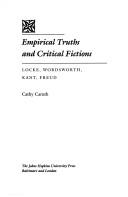
ISBN: 0801896487 9780801896484 0801892694 0801840805 Year: 2009 Publisher: Baltimore Johns Hopkins University Press
Abstract | Keywords | Export | Availability | Bookmark
 Loading...
Loading...Choose an application
- Reference Manager
- EndNote
- RefWorks (Direct export to RefWorks)
Caruth thus reveals, in each of these authors, a tension between the abstraction of a conceptual language freed from reference and the compelling referential resistance of particular stories to abstraction.
Empiricism. --- Literature --- Experience --- Knowledge, Theory of --- Rationalism --- History and criticism --- Theory, etc. --- Wordsworth, William --- Freud, Sigmund, --- Kant, Immanuel, --- Locke, John, --- Locke, John --- Kant, Immanuel --- Kant, I. --- Kānt, ʻAmmānūʼīl, --- Kant, Immanouel, --- Kant, Immanuil, --- Kʻantʻŭ, --- Kant, --- Kant, Emmanuel, --- Ḳanṭ, ʻImanuʼel, --- Kant, E., --- Kant, Emanuel, --- Cantơ, I., --- Kant, Emanuele, --- Kant, Im. --- קאנט --- קאנט, א. --- קאנט, עמנואל --- קאנט, עמנואל, --- קאנט, ע. --- קנט --- קנט, עמנואל --- קנט, עמנואל, --- كانت ، ايمانوئل --- كنت، إمانويل، --- カントイマニユエル, --- Kangde, --- 康德, --- Kanṭ, Īmānwīl, --- كانط، إيمانويل --- Kant, Manuel, --- Freud, Sigmund --- Wœ̄tsawœ̄t, Winlīam, --- Wurdzwurth, Wilyam, --- Varḍsavartha Viliyama, --- Axiologus, --- Knowledge --- Literature. --- History and criticism. --- Wordsworth, William, --- Criticism and interpretation. --- Influence. --- Appraisal of books --- Books --- Evaluation of literature --- Criticism --- Literary style --- Appraisal --- Evaluation --- Philanthropus, --- Lokk, Dzhon, --- Lūk, Jūn, --- Lo-kʻo, --- Locke, Giovanni, --- Lock, --- Lock, John, --- Rokku, Jon, --- לוק, י׳ון, --- Empiricism --- Literature History and criticism --- Theory, etc
Book
ISBN: 1421414457 9781421414454 1421414449 9781421414447 Year: 2014 Publisher: Baltimore : The Johns Hopkins University Press,
Abstract | Keywords | Export | Availability | Bookmark
 Loading...
Loading...Choose an application
- Reference Manager
- EndNote
- RefWorks (Direct export to RefWorks)
Book
ISBN: 9780801892691 Year: 2009 Publisher: Baltimore The Johns Hopkins University Press
Abstract | Keywords | Export | Availability | Bookmark
 Loading...
Loading...Choose an application
- Reference Manager
- EndNote
- RefWorks (Direct export to RefWorks)
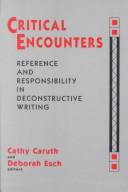
ISBN: 081352086X 0813520851 Year: 1995 Publisher: New Brunswick, N.J. Rutgers University Press
Abstract | Keywords | Export | Availability | Bookmark
 Loading...
Loading...Choose an application
- Reference Manager
- EndNote
- RefWorks (Direct export to RefWorks)
Literature --- Criticism. --- Deconstruction. --- Structuralism (Literary analysis) --- Structuralism (Literary analysis).
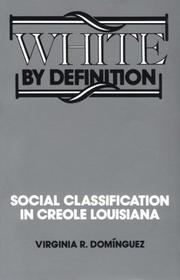
ISBN: 0813520886 Year: 1995 Publisher: New Brunswick Rutgers university press
Abstract | Keywords | Export | Availability | Bookmark
 Loading...
Loading...Choose an application
- Reference Manager
- EndNote
- RefWorks (Direct export to RefWorks)
Book

ISBN: 0817387412 9780817387419 9780817357689 Year: 2014 Publisher: Tuscaloosa University of Alabama Press
Abstract | Keywords | Export | Availability | Bookmark
 Loading...
Loading...Choose an application
- Reference Manager
- EndNote
- RefWorks (Direct export to RefWorks)
In Knowing the Suffering of Others, legal scholar Austin Sarat brings together essays that address suffering as it relates to the law, highlighting the ways law imagines suffering and how pain and suffering become jurisprudential facts.From fetal imaging to end-of-life decisions, torts to international human rights, domestic violence to torture, and the law of war to victim impact statements, the law is awash in epistemological and ethical problems associated with knowing and imagining suffering. In each of these domains we might ask: How well do legal actors perceive and u
Pain. --- Suffering. --- Law --- Juridical psychology --- Juristic psychology --- Legal psychology --- Psychology, Juridical --- Psychology, Juristic --- Psychology, Legal --- Psychology, Applied --- Therapeutic jurisprudence --- Affliction --- Masochism --- Pain --- Aches --- Emotions --- Pleasure --- Senses and sensation --- Symptoms --- Analgesia --- Suffering --- Psychological aspects. --- Psychology
| Listing 1 - 10 of 18 | << page >> |
Sort by
|

 Search
Search Feedback
Feedback About UniCat
About UniCat  Help
Help News
News